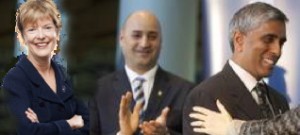In keeping with the language of the Collective Agreement, the terms of reference established a fact-finding process to investigate whether Dr. Berdahl’ s academic freedom was “interfered with in any way.” The Investigation concluded that it was.
The University, however, repeatedly stated that Dr. Berdahl’s academic freedom was not infringed. This communication is not entirely consistent with the Summary Report.
While the Summary Report concludes that no single individual alone is responsible for the infringement, it clearly communicates that the cumulative effect of the actions as well as inactions of the University amounted to interference with Dr. Berdahl’s academic freedom. To quote directly from the public Summary Report, Professor Smith found that:
UBC failed in its obligation to protect and support Dr. Berdahl’s academic freedom. The Collective Agreement Preamble creates a positive obligation to support and protect academic freedom. Through the combined acts and omissions of Mr. Montalbano, the named individuals in the Sauder School, and others, UBC as an institution failed to meet that obligation with respect to Dr. Berdahl’s academic freedom.
Further, because the question of whether interference occurred was foreseeable, the University and the Faculty Association had a phone conversation with Professor Smith to clarify the matter. Professor Smith explicitly confirmed for the Parties that one of her findings was that Dr. Berdahl’s academic freedom had indeed been interfered with.
It is therefore disappointing that despite such explicit clarification the University failed to acknowledge this important finding of fact in the press conference yesterday and instead simply repeated that there was no infringement of Dr. Berdahl’s academic freedom. In essence, the University has only acknowledged part of the problem….
Read More: FAUBC
Mark Mac Lean, President
On behalf of the UBC Faculty Association Executive Committee

 Follow
Follow